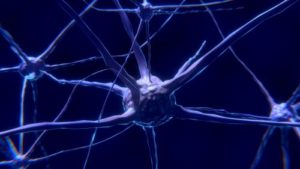
African American Mindfulness Researchers Make Vital Contributions
The growing recognition of transdisciplinarity’s powerful nature offers researchers valuable opportunities for collaboration

Mindfulness-Based Resilience Training (MBRT)
Mindfulness-based resilience training (Christopher et al., 2016; 2018) is designed to enhance resilience and reduce aggression and use of force errors among law enforcement and other first responders. Based on a MBRP framework, it is an 8-week course with experiential and didactic exercises, including body scan, sitting and walking meditations, mindful movement, and other MBRP practices (Bowen et al., 2011).
Course Format: Weekly classes last 2 hours, and the seventh week is an extended 6-hour class. Each class contains experiential and didactic exercises, as well as discussion and homework. Content and language of experiential exercises were altered to be more relevant to first responders, and much of the curriculum is focused on learning strategies to manage stressors inherent to this type of work. These include critical incidents, chronic stress, and public scrutiny, as well as interpersonal, affective, and behavioral challenges in first responders’ personal lives. Didactic learning is much more prominent than in most other MBIs. This was found to be very helpful for first responders as they sought to enhance their intention to endure the challenges of the training.
“While exposure to trauma and stressors is an inherent part of a police officer’s job, programs that teach them to relate to these experiences more skillfully may help reduce the harmful effects of stress on their behaviors with the diverse citizens they serve.”
An additional adaptation, in the tradition of typical first responder meetings, is the inclusion of a debriefing at the conclusion of each class, in which participants ask questions and give frank feedback about the class. The mindful encounters exercise is a derivation of the martial arts exercises (e.g., conversational Jujitsu) used in the MBSR curriculum to practice mindful interpersonal conflict. The exercise is framed as an important skill to be used when interacting with others. In another exercise, reactivity awareness, participants settle into a sustained, reclined breath- awareness practice, and then with verbal instruction to sustain awareness, a 911 call center recording with emergency audio tone is played for 60 seconds and then turned off. Participants are cued to continue sustained attention to body sensation and breath for a few more minutes, helping them gain an experiential sense of stress physiology. In addition, participants are invited to include a component of mindfulness during their regular exercise regimen, such as running, swimming, or biking, as part of their mindful movement homework.
While exposure to trauma and stressors is an inherent part of a police officer’s job, programs that teach them to relate to these experiences more skillfully may help reduce the harmful effects of stress on their behaviors with the diverse citizens they serve. An important training practice is LKM, through which officers develop kindness and warmth for themselves and members of the communities they serve. Given the injustices communities of color are suffering, it is important for police officers to develop connections and an understanding of the humanness of people in these communities.
Bowen, S., Witkiewitz, K., Chawla, N., & Grow, J. (2011). Integrating mindfulness meditation and cognitive behavioral traditions for the long-term treatment of addictive behaviors. JCOM,18(10), 473-479.
Christopher, M. S., Goerling, R. J., Rogers, B. S., Hunsinger, M., Baron, G., Bergman, A. L., & Zava, D. T. (2016). A Pilot Study Evaluating the Effectiveness of a Mindfulness-Based Intervention on Cortisol Awakening Response and Health Outcomes among Law Enforcement Officers. Journal of Police and Criminal Psychology, 31(1), 15-28. https://doi.org/10.1007/s11896-015-9161-x
Christopher, Michael S., Hunsinger, M., Goerling, L. Richard J., Bowen, S., Rogers, Brant S., Gross, Cynthia R., Dapolonia, E., Pruessner, Jens C. (2018). Mindfulness-based resilience training to reduce health risk, stress reactivity, and aggression among law enforcement officers: A feasibility and preliminary efficacy trial. Psychiatry Research, 264, 104-115. https://doi.org/https://doi.org/10.1016/j.psychres.2018.03.059
Hunsinger, M., Christopher, M., & Schmidt, A. M. (2019). Mindfulness Training, Implicit Bias, and Force Response Decision-Making. Mindfulness, 10(12), 2555-2566. https://doi.org/10.1007/s12671-019-01213-8

Michael Christopher, PhD is a clinical psychologist at Pacific University in Portland, Oregon. He developed the Mindfulness-based Resilience Training (MBRT).

The growing recognition of transdisciplinarity’s powerful nature offers researchers valuable opportunities for collaboration

Does the scientific content that we read always mean what it claims?

The growing recognition of transdisciplinarity’s powerful nature offers researchers valuable opportunities for collaboration

Mindfulness practices like critical analysis can reveal the mental formations behind these tools.

By providing an immersive, engrossing, and controlled visual and auditory experience in which participants can practice mindfulness techniques, Virtual Reality (VR) systems can create immersive, ecologically valid, first-person experiences that can even tap into physiological reactions that align with real-world experiences.

The researchers were interested in understanding if forgiveness acts as a mechanism by which mindfulness relates to relationship satisfaction. They speculated that being mindful would allow individuals to be aware of their own and their partners’ emotions in a non-judgmental and non-reactive way. The increased awareness would make people more forgiving of partner transgressions, thereby enhancing relationship satisfaction.

Emerging studies are highlighting the effectiveness of mindfulness, gratitude and hopefulness as positive psychological tools in helping people cope with anxiety and stress. These practices have also been considered beneficial in enhancing psychological health and well-being.

After nearly three decades, a ban prohibiting public schools to offer yoga as an elective for grades K-12 has been overturned in Alabama.

Rather than proposing a single definition, mindfulness might be better understood in relation to the phenomenology of the various contemplative traditions and practices that intend to develop mindfulness.

Ruben Laukkonen is a cognitive neuroscientist at the VU University of Amsterdam. His research focuses on sudden insight experiences and the effects of intensive meditation on the mind and brain. Using a combination of neuroimaging, machine learning, and neuro-phenomenology, Ruben is investigating some of the most rare states of consciousness accessible to human beings. He has published articles in leading journals, given talks at prestigious conferences, and has written on topics that range from artificial intelligence to psychedelics. Ruben has an eclectic contemplative background, including different meditation traditions such as Zen, Advaita, and Theravada.

Despite significant advances in the field of psychology due to increased research … the usual care of people with chronic medical conditions still often neglects the psychological issues associated with the physical dimension of the disease.

Despite growing knowledge that mindfulness meditation can enhance emotional wellbeing, very little is known about how it all works. How exactly does the act of meditation help us deal with the emotional rollercoaster of everyday life? Is mindfulness training actually “transferrable” to real world situations? What’s going on in the brain? Can we even measure it?

“We focus on concentration,” Jones says. “So rather than sharpening your focus, which is what happens when you get anxious, the goal is to relax your focus.” The ability to utilize your breath to calm your nervous system is the first step to teaching mindfulness.

How does self-compassion protect depressed adolescents? Quieting the self may be the key.

A study led by Alexandra Martelli investigated whether more mindful individuals (based on self-report measure scores) would respond to social rejection with less distress and if certain neurological mechanisms in the brain’s prefrontal cortex can potentially explain the role of mindfulness in reduced social distress.

A research team from Valencia, Spain recently investigated the effects of a brief mindfulness-based intervention on both mood and biological markers on a sample of health professional students.

A new study by Kim and colleagues explored how compassion-based training can affect two self-regulatory styles and its relationship to neural, physiological, and behavioral responses.

Torre and colleagues recruited 70 HCWs from two hospitals in Rome, Italy for a 4-week course in yoga and mindfulness.

A team of researchers based in the perceived epicenter of the virus, Wuhan, China, recently tested whether a brief mindfulness intervention delivered through an app could be effective for reducing anxiety and protecting nightly sleep during the unfolding pandemic.

Mindfulness practices can enhance a therapist’s ability to intentionally and flexibly regulate attention as well as emotional reactivity which has been demonstrated to influence burnout.

A new study investigated whether a brief mindfulness training designed to reduce physician burnout could be delivered through a smartphone app.

The current study reviewed the wider scientific literature for the role of yoga and mindfulness interventions in the treatment of severe mental illness.

The amount of research involving mindfulness interventions has grown exponentially; however, only in the last decade has mindfulness research involving adolescents rapidly increased.

Mindfulness and self-compassion are theorized to disrupt the maladaptive repetition of negative thoughts and emotions for patients with chronic or mental illnesses, who are particularly susceptible to psychosocial distress.

According to the Association for Mindfulness in Education, mindfulness can increase students’ emotional regulation, social skills, self-esteem, and organizational capacities.

There is promising evidence that 70% of smokers would like to quit but less than 5% of unassisted attempts at quitting are actually successful.

In a recent pilot study by Suzette Glasner, Ph.D. and her team at the Integrated Substance Abuse Programs at the David Geffen School of Medicine at UCLA, they evaluated the effects of Mindfulness-Based Relapse Prevention (MBRP) on reducing relapse susceptibility among stimulant-dependent adults receiving a contingency management (CM) intervention.

A major implication of the study suggests the distal effects of intensive retreat practice on respiration rates, a benefit not necessarily conferred by a brief, but full-day meditation session.

Researchers are exploring mindfulness-based interventions as a long-term treatment options to address the multitude of symptoms after cancer has been treated.

While the scientific study of mindfulness has exponentially increased over the past few decades, only recently has the scientific community focused on the effects of meditation training on biological aging.
Tell us about your idea. Nearly any subject related to the science of mindfulness is fair game.